- Home
- J. R. Ward
[Fallen Angels 01] - Covet Page 23
[Fallen Angels 01] - Covet Read online
Page 23
As he glanced over, he saw that on her knees, her knuckles were white from tension.
“It doesn’t have to be a quid pro quo,” he murmured. “Just because I tell you things doesn’t mean you have to return the favor.”
She smiled a little. “Oh. I know. It’s just…I’m not used to talking.”
“That makes two of us.”
Her eyes moved around the room and then stayed on the open door. “Your parents argued a lot?”
“All the time.”
“Did they…fight? As in more than just verbal…you know.”
“Yup. Most of the time my mother’s face looked like a Rorschach test…although she gave as good as she got—not that that excused in any way my father’s punches.” Vin shook his head. “I don’t give a shit what goes down, a man should never, ever raise a hand to a woman.”
Marie-Terese laid her cheek down on top of her knees, and stared over at him. “Some men don’t share that philosophy. And some women don’t fight back like your mother did.”
When a growl sounded out in the room, she sat up in surprise…which confirmed that, yeah, the low, dangerous sound had come from him.
“Tell me that wasn’t your experience,” Vin said darkly.
“Oh, no…” she replied quickly. “But it was rough getting out of my marriage. After I told my now ex-husband that I was leaving him, he took our son and went all around the country. I didn’t know where my child was or what had happened…three months. Three months and a private investigator and then lawyers to get free of the marriage and away from him. Everything I did was to make sure my son was and is safe.”
Now her picture was becoming clear, Vin thought. And he was relieved that however bad it had been, she hadn’t been battered on top of all of that. “Must have cost a lot of money.”
She nodded and put her head down again. “My ex was a lot like you. Very wealthy, powerful…handsome.”
Okay…shit. It was great she found him attractive, but he didn’t like where this was invariably leading. How could he convince her that he wasn’t—
“Mark never would have done something like this, though,” she said quietly. “He never would have let himself be this…exposed. Thank you for this…. It’s actually the nicest thing a man’s ever done for me, in a way.”
As Vin lifted his hand, he did it very slowly, so she knew exactly where it was. And when he brought his palm to her face, he gave her plenty of time to move back.
She didn’t. She just met and held his eyes.
Moments expanded into minutes, and neither of them looked away.
As the silence thickened, Vin leaned in and her lips parted, her head shifting up off her knees as if she wanted to meet his mouth as much as he wanted to meet hers.
At the last second, he just kissed her forehead, though. And then he drew her into his arms, wrapping her up close and holding her. As her head rested on his chest, he smoothed his palm over her back in slow, big circles. In response, the shudder she let out was a surrender more complete, more profound, more intimate than if she’d given her body over to him for sex, and he accepted the gift of her trust with the reverence it deserved.
Resting his chin lightly on the top of her head, Vin looked across the room…and had the answer to the question he’d been asking himself since he’d first seen her.
Tucked into the frame of the mirror, just one among the other things, was a picture of the Madonna on a stiff card. In the depiction, she had jet-black hair and brilliant blue eyes and she was beyond lovely, her face tilted down, her golden halo a circle above her head, the aura around her whole form glowing.
He’d gotten the card from one of those evangelical types who’d shown up at the door here a long, long time ago.
As usual, the only reason he’d answered the knock was because his drunken mother had been on the verge of doing so, and he couldn’t bear the shame of anyone seeing her in her dirty housecoat and with all that ratty hair. The guy on the other side of the door had been dressed in a black suit and had looked like what Vin had wished his father did—neat, tidy, healthy, and calm.
Vin had lied about his parents being home, and when the man had looked beyond into the living room, Vin said that was not his mother, but a sick relative.
The evangelist’s eyes had filled with sorrow, as if he weren’t unfamiliar with the situation, and the guy had skipped his spiel, just handing over the card and telling Vin to use the number on the back if he needed shelter.
Vin had taken what was offered and gone upstairs to sit with it in his palms. He’d instantaneously loved the lady on the front because she’d looked as if she never got drunk and never yelled and never hit anyone. And to make sure she was protected, he’d hidden her picture from his mother and father by making it obvious and placing it in full view on the mirror—usually when his mother ransacked his room, she just went for the drawers and the closet and whatever was under the bed.
Now he had his answer.
As he stared at the card, he realized Marie-Terese looked exactly like her.
CHAPTER
22
Jim worked his knife over the piece of wood with care and confidence. In front of him, on the newspaper he’d laid out on the floor at his feet, a pile of wood chips was growing and Dog was right next to the whole production, watching with those big brown eyes, appearing to understand on every level why someone would choose to behave this way toward a stick.
“It’s going to be part of my chess set.” Jim nodded at a shoe box he’d been filling up over the last month. “I think I’ll make this one…. Well, I’m tired of doing pawns. So this will be the queen.”
He’d gotten the wood from the oak trees on the property when branches broke off in the winds and fell to the ground, and he was slow but steady with his hobby, good for a couple of pieces every now and again. The tool he used was a hunting knife he’d been given by his commanding officer long ago and talk about oldie, but goodie. The thing was a masterpiece of weaponry that was deceptively humble, with no identifying trademarks, serial numbers or initials, and nothing to tip off the fact that it had been handmade by an expert for use by an expert. And Jim knew the thing like the back of his own hand, the stainless-steel blade a vicious piece of work, the handle wrapped in leather that had been aged with his own sweat.
Lifting it up, he measured the flash of the overhead light on the blade’s patinaed surface. Funny, he thought, here in this one-room apartment, being used to transform wood into a game piece, it was just a knife. In most other circumstances, it had been a deadly weapon.
The purpose was everything, wasn’t it.
As he went back to work, the blade made a soft scraping sound as he used his thumb to pull the knife toward himself, his hand carefully guiding each stroke, reducing the wood by increments to reveal the chess piece trapped inside.
Over the last twenty years, he’d spent hours like this: By himself. No radio, no television. Just a piece of wood and a knife. He’d made birds and animals and stars and letters that spelled nothing. Carved faces and places. Trees and flowers.
There were many advantages to his hobby. Cheap, portable, and he’d always had his blade wherever he’d been.
Guns had come and gone. Other kinds of weapons, too. COs as well.
But the knife had always been with him.
God, the day it had been presented to him, its flank had been mirror clear, and the first thing he’d done was take it outside of his quarters and rub dirt on both sides of it: Dulling all that bright-and-shiny, like sharpening the business edges, had been part of enhancing its utility.
The weapon had never failed him. And damn if he didn’t say so himself, but it cut up a nice piece of wood, too—
His cell phone went off, ringing from over on the bedspread. As he went to go see who it was, he put the oak branch down and kept the knife with him out of habit.
Flipping open the phone, he saw that it was an untraceable number and knew exactly who it was.
&n
bsp; Pushing his thumb on the send button, he brought the cell to his ear. “Yeah?”
Silence. And then that deep, cynical voice: “Which piece are you working on?”
Fucker. Matthias the fucker always knew too much. “The queen.”
“Old habits die hard, don’t they.”
As did former bosses. “Thought you said I couldn’t call you anymore.”
“Your fingers didn’t do the walking this time, did they.”
“And to think you wasted all that effort just to find out what I was doing.”
There was a pause. “The license plate number. Why do you need to run it and why do you care about the vehicle’s owner.”
Ah, so that was the why of the call. “None of your business.”
“We don’t condone freelancing. On any level. You pull shit like that and you’re not just off active duty, you’re going to be retired.”
Which meant there was a pine box, not a gold watch, in his future: His bosses didn’t send you off into the sunset with a Rolex. You just woke up dead one morning.
“Whatever, Matthias, I know the drill, and if you called just to double-check on that, you wasted—”
“So what’s the plate number?”
Jim paused, and thought, Guess the debt was still owed.
As he recited Marie-Terese’s tag number and detailed what little he knew about the woman, he was confident the search wouldn’t get flagged as inappropriate, even though it was going through government channels. Matthias was smooth, for one thing. For another, there was only one other guy with more power than he had.
And that SOB worked out of an oval office.
Yup, there were times when it didn’t hurt to have the big dog owe you his life.
“I’ll be in touch,” Matthias said.
When the phone went dead, Jim looked down at his knife. Matthias had gotten one at the same time Jim had, and the guy had been damn good with it—but he’d also been excellent at “office” politics, whereas Jim, with all of his antisocial tendencies, had stayed in the field. One path took Matthias to the top; the other had landed Jim…in a studio over a garage.
With a new set of bosses.
Jim shook his head as he compared those four aristocratic nancies with their croquet balls and their wolfhound and their castle to Matthias and his ilk: It was like putting a bunch of ballet slippers up against hiking boots outfitted with ice spurs. No contest—at least on the surface. Jim had the distinct impression, however, that those boys on the other side had shit in their back pockets that would make all the conventional and nuclear weapons at Matthias’s disposal look like toys.
He went back over and sat down on the cheapy chair next to Dog, except this time he took his cell with him. As he resumed carving, he thought about his new line of work.
Assuming that Vin followed through and broke things off with Devina, and provided the guy managed to get through Marie-Terese’s shell, Jim had to wonder what the hell his own role was with the whole “crossroads” bit. Yeah, maybe he’d managed to get the pair of them in the same place on Friday night, but other than that, what had he done?
This was either the easiest gig on the planet, or he was missing something.
A little later, Jim glanced at the clock. And then a half hour after that he looked again.
Matthias worked fast. Always. And on its face, the request was a simple one: Verify the registration and owner of a five-year-old Toyota Camry and perform a criminal background check. It was the kind of thing that took two sweeps of a mouse, six strokes on a keyboard, and about a nanosecond.
Unless a national security emergency had occurred. Or something had been found in Marie-Terese’s records.
There were reasons why people felt the need to look behind themselves in dark alleys. Good reasons why most tended to hurry along, even if it wasn’t chilly. Excellent reasons why lighted streets were much preferred at night.
“Oh…God, no…. please—”
The downward sweep of the tire iron cut off the pleading and it was a sharp extinguishing, like turning off a light: One moment there was illumination, the next nothing but blackness.
One moment there was a voice, the next nothing but silence.
Blood was on both their faces now.
As he set about killing the man, rage lifted his arm more than any conscious thought did and his anger gave him the kind of strength that meant this wasn’t going to take long. Just one more strike, if even that, and there would be more than a temporary silence.
Shifting his weight to get the most out of the downward trajectory, he—
At the far end of the alley, the headlights of a car swept around, the twin paths of beams hitting the brick of the building to the left and pouring down its rough wall.
No time for another strike. In a split second, he was going to be lit as clear as if he were on stage.
Wheeling around, he shot over to the opposite side of the alley, running as fast as he could. As he gunned around the corner, they were going to catch sight of his jacket and the back of his baseball cap, but there were a hundred black Gore-Tex windbreakers in Caldwell, and a black hat was a black hat was a black hat.
There was a screech of brakes and then someone yelled something.
He kept going with the hightailing for only three blocks, and when there was no more shouting and no roaring sounds of a car chasing him, he slowed his pace, then ducked into an inset doorway that had no overhead light. Shucking the windbreaker, he buried the tire iron in it, making knot after knot with the sleeves to tie the thing up while he caught his breath.
His car was not far away because he’d left it somewhere other than the Iron Mask’s parking lot just to be safe. And hadn’t that turned out to be the right decision.
Even after he was breathing slowly and steadily, he stayed where he was, hidden and safe. The police sirens came about five minutes later and he watched two marked cars speed by. About a minute and a half later a third one, which was unmarked and had its flashing light stuck to the dashboard, went tearing past him.
When there were no others, he took off his baseball cap, wadded it up, and shoved it into the pocket of his jeans. Then he took off his belt, pulled up his fleece, and secured the bloody tire iron and its wrapping against his rib cage. After covering himself up again, he ghosted out of the doorway and headed for his car, which was less than a quarter of a mile away.
Going along, he walked neither fast nor slow, and he looked around with his eyes but not his head. To the casual observer, he was just another pedestrian out after midnight, a young guy about to meet up with friends or maybe on his way to his girl’s house: Nothing unusual, utterly unnotable as he encountered a pair of guys and a homeless woman and a pack of couples.
His car was just where he’d left it and he had to get in carefully, thanks to what was stashed under his fleece. Starting the engine, he headed out onto Trade, and when an ambulance went steaming by him, he did the right thing, ducking to the side and getting out of the way.
No need to hurry, boys, he thought. Given how hard he’d hit that guy, there was no way they’d bring him around.
Cutting down toward the river, he stayed with the flow of traffic, to the extent that there was any, but there weren’t a lot of people out on the roads this late. And there were fewer and fewer as he went farther and father away from downtown.
A good fifteen miles later, he pulled over to the side of the road.
No streetlights here. No cars. Just a stretch of asphalt with trees and brush that came right up to the gravel shoulder.
Getting out, he locked his car and crunched through the woods, heading for the river. When he emerged at the Hudson’s shoreline, he looked across the way. There were some houses on the other side, but they had outdoor lights on only, which meant the inhabitants were asleep—although it wouldn’t matter if they were awake, lying in bed, or even walking through their kitchens, trolling for a snack. No one was going to see him. The river was wide here, wide and dee
p.
Lifting up his black fleece, he freed the tire iron, and with a bracing throw, pitched it along with its windbreaker bathing suit into the water. With a plunk and just a little splash, the thing sank in the blink of an eye, never to be found again: The riverbed was at least ten feet down in this part, but even better, he’d chosen a spot where there was a curve to the Hudson’s course—the current would not only carry the tire iron farther away from Caldwell; it would drag the thing farther out into the middle, away from the shore.
Back at his car, he got in and kept on going.
He drove around for a while, listening to the local radio, dying to know what the police were going to report about what had happened in that alley. But there was nothing. Just hip-hop and pop rock on FM and conspiracy theorists and right-wing talking heads on AM.
As he went along, taking random lefts and rights, he thought about the way things had gone tonight. He could feel himself slipping into old ways and habits, and that was not good—although on some level, it seemed inevitable.
Hard to change who you were inside. Very hard.
The thing was, shooting those college boys the night before had been a bit of shock, but the whole tire-iron incident just now seemed like business as usual. And the trigger for the kill had been much lower. The guy hadn’t even been aggressive toward her in that club. He’d had her and that was enough: One look at that self-satisfied smile when he’d come out of that bathroom they’d disappeared into and the sonofabitch was a dead man.
But things couldn’t keep going like this. He was smart enough to know that if he continued to off men downtown, his chances of getting caught increased with each body he left behind. So he either needed to stop…or clean up his messes.
When he was satisfied he hadn’t been followed, and when he could no longer fight the urge to check the TV, he headed for home—or for what had been home for the past two months.
The house was a rental on the outskirts of town, in a neighborhood full of either young families with young kids or old couples with no kids. And given the number of folks who were having a hard time in the real estate bust, it had been easy for him to find something.

 Lover Avenged
Lover Avenged Dearest Ivie
Dearest Ivie Lover Unbound
Lover Unbound Blood Fury
Blood Fury Lover Revealed
Lover Revealed The Thief
The Thief Lover Enshrined
Lover Enshrined Blood Kiss
Blood Kiss An Insiders Guide
An Insiders Guide Envy
Envy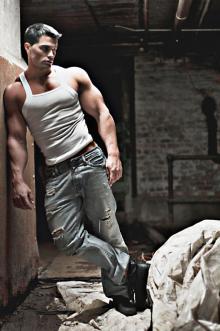 Crave
Crave Lover At Last
Lover At Last Possession
Possession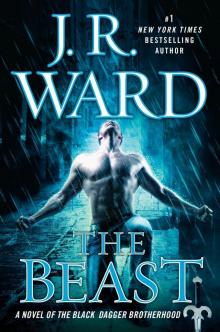 The Beast
The Beast Lover Awakened
Lover Awakened Lover Reborn
Lover Reborn The King
The King Father Mine
Father Mine Lover Mine
Lover Mine Lover Eternal
Lover Eternal The Chosen
The Chosen The Shadows
The Shadows Lover Unleashed
Lover Unleashed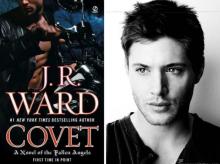 Covet
Covet The Savior
The Savior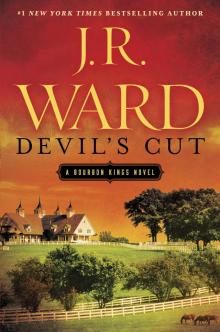 Devil's Cut
Devil's Cut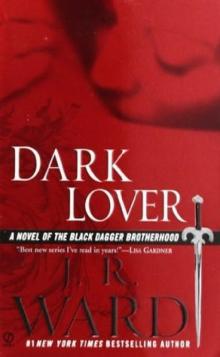 Dark Lover
Dark Lover Rapture
Rapture The Angels' Share
The Angels' Share Blood Vow
Blood Vow The Bourbon Kings
The Bourbon Kings The Billionaire
The Billionaire The Jackal
The Jackal Revealed
Revealed The Sinner
The Sinner The Jackal (Black Dagger Brotherhood: Prison Camp)
The Jackal (Black Dagger Brotherhood: Prison Camp) Immortal
Immortal Where Winter Finds You
Where Winter Finds You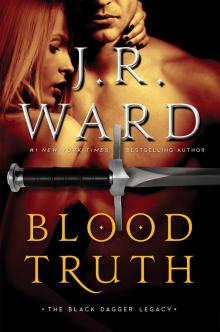 Blood Truth
Blood Truth A Warm Heart in Winter
A Warm Heart in Winter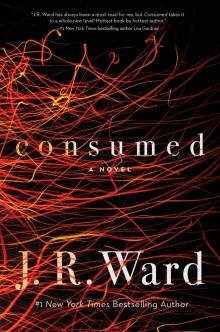 Consumed
Consumed Lover Reborn tbdb-10
Lover Reborn tbdb-10 The Black Dagger Brotherhood Novels 5-8
The Black Dagger Brotherhood Novels 5-8 Prisoner of Night
Prisoner of Night The Wedding from Hell Bind-Up
The Wedding from Hell Bind-Up Envy fa-3
Envy fa-3![Covet - A Novel of Fallen Angels [01] Read online](http://i1.bookreadfree.com/i/03/24/covet_-_a_novel_of_fallen_angels_01_preview.jpg) Covet - A Novel of Fallen Angels [01]
Covet - A Novel of Fallen Angels [01] The Rebel
The Rebel The Black Dagger Brotherhood
The Black Dagger Brotherhood The Rogue
The Rogue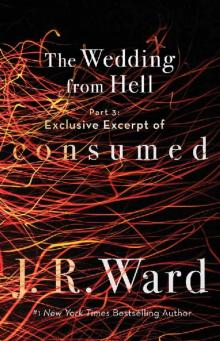 The Wedding from Hell, Part 3: Exclusive Excerpt of Consumed
The Wedding from Hell, Part 3: Exclusive Excerpt of Consumed Heart of Gold
Heart of Gold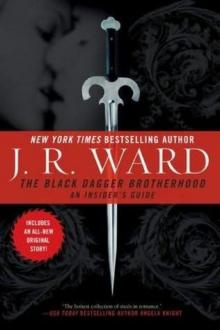 The Black Dagger Brotherhood_An Insider's Guide
The Black Dagger Brotherhood_An Insider's Guide![[Fallen Angels 01] - Covet Read online](http://i1.bookreadfree.com/i1/04/03/fallen_angels_01_-_covet_preview.jpg) [Fallen Angels 01] - Covet
[Fallen Angels 01] - Covet The Renegade
The Renegade Blood Fury: Black Dagger Legacy
Blood Fury: Black Dagger Legacy Rapture: A Novel of The Fallen Angels
Rapture: A Novel of The Fallen Angels Lover At Last: A Novel of the Black Dagger Brotherhood
Lover At Last: A Novel of the Black Dagger Brotherhood Lover At Last tbdb-11
Lover At Last tbdb-11 Lover Revealed tbdb-4
Lover Revealed tbdb-4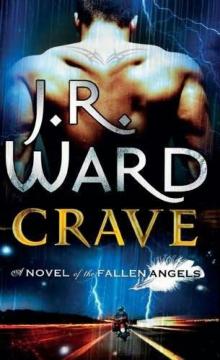 Crave fa-2
Crave fa-2 Lover Awakened tbdb-3
Lover Awakened tbdb-3 Lover Unleashed bdb-9
Lover Unleashed bdb-9 The Story of Son
The Story of Son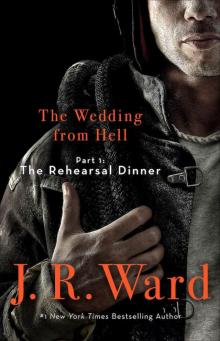 The Wedding from Hell_Part 1_The Rehearsal Dinner
The Wedding from Hell_Part 1_The Rehearsal Dinner An Irresistible Bachelor
An Irresistible Bachelor Rapture fa-4
Rapture fa-4 Possession fa-5
Possession fa-5 The Black Dagger Brotherhood Novels 1-4
The Black Dagger Brotherhood Novels 1-4 Lover Eternal tbdb-2
Lover Eternal tbdb-2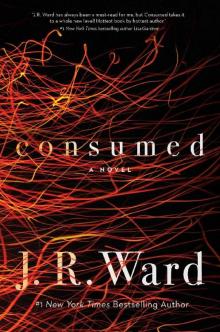 Consumed (Firefighters #1)
Consumed (Firefighters #1)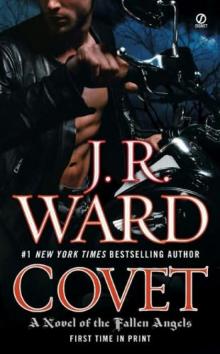 Covet fa-1
Covet fa-1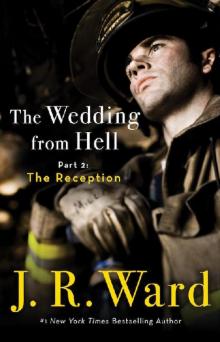 The Wedding From Hell: Part 2: The Reception
The Wedding From Hell: Part 2: The Reception Lover Reborn: A Novel of the Black Dagger Brotherhood
Lover Reborn: A Novel of the Black Dagger Brotherhood